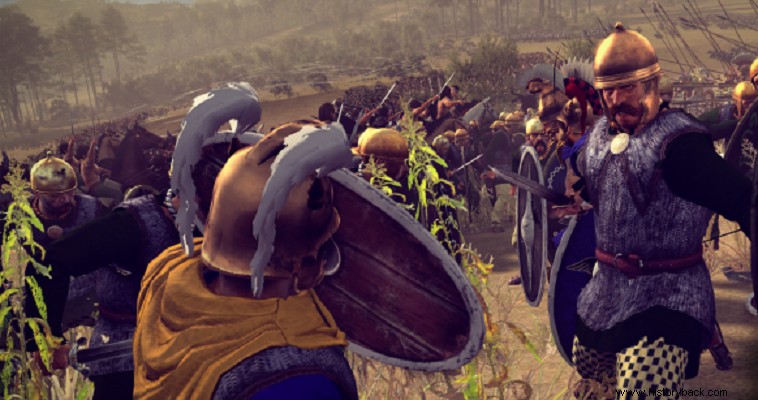
In both cases of barbaric attacks against Delphi, the ancient writers all agree that miraculous phenomena occurred. Rocks were detached from Parnassos, after first thunder was heard and smoke was coming out. The rocks that came off the mountain collapsed, in 480 BC. the Persians, while those of them who were saved fled in terror in disorderly flight.
The Gauls suffered even worse in 279 BC. for which we also have a detailed description from the traveler Pausanias. "Brennus (leader of the Gauls) without delay, before the other Gauls under Acichorius arrived from the camp, set out against Delphi.
"The inhabitants of Delphi fled from fear to the oracle. But the god motivated them to stop being afraid because he was able to protect his rights. The Greeks who came to fight for the sanctuary were as follows:Phocians from all the cities, 400 hoplites from Amfissa, a few from the Aetolians came as soon as they learned that the barbarians were continuing their advance.
"But later, their general Philomilos brought another 1,200. The most prosperous Aetolian warriors turned against the army of Akichori, who did not start a battle but attacked the idlers and they seized the vessels, killing their attendants.
"Thus the Gauls were obliged to march slowly. Akichorios had left part of his army to guard the camp. All the Greeks gathered at Delphi fought against Brennos and the army. And God showed signs from the beginning (divine signs – signs of Zeus), more and clearer than those known to us.
"And earthquakes, strong earthquakes, many times a day, took place in the land occupied by the army of the Gauls, and thunders were heard and lightnings constantly fell. The thunder frightened the Celts and the lightning killed, not only whoever it struck, but also those who were close to it ….
"The specters of the heroes Hyperochus, Laodocus and Pyrrhus were also presented to the Celts. Some argue that Phylakos, a local hero of Delphi, also appeared," says the traveler Pausanias in the 2nd century. A.D. (Pausanias Fokica 10, 22). The description of Pausanias it is extremely impressive and paradoxically it is almost identical to the corresponding one, but approximately 600 years older, by Herodotus.
Particularly revealing is the passage that refers to lightning that killed not one, but groups of Gauls, destroying even their weapons. On the other hand, these lightnings are associated with thunder "that scared the Celts".
And yet the truly experienced Celts, coming from a country with a clearly worse climate than Greece, obviously used to bad weather, were terrified by some lightning, as if they had never faced similar weather phenomena before.
Could it be that the Delphic priesthood, after all, responsible for the biological destruction of Kyra, in the 6th c. e.g. did he know the secret of "lightning", i.e. some form of explosive material? Could it be that the landslides were caused by the use of these materials, but also the mass explosions of the Gauls?
